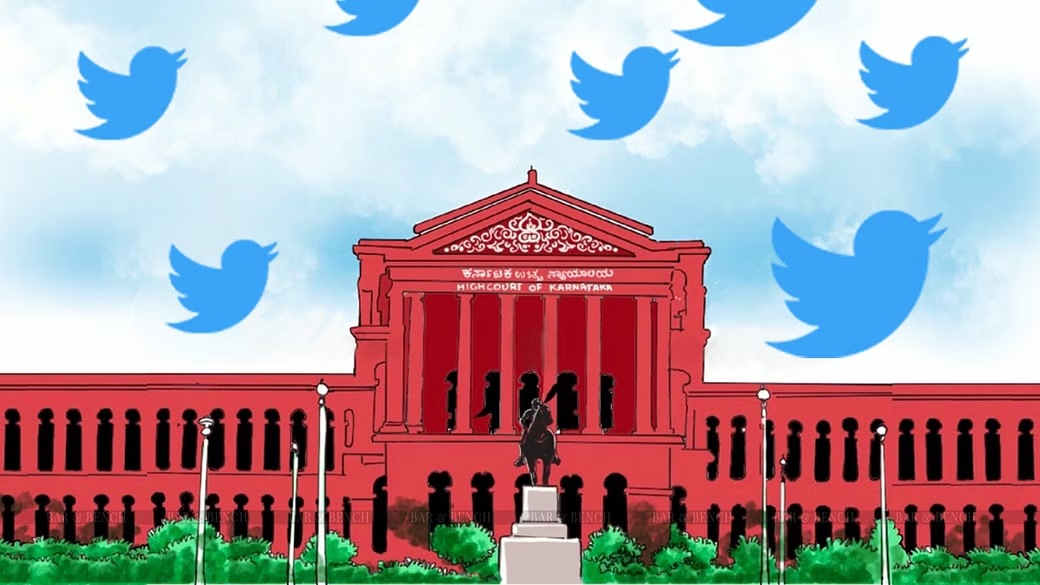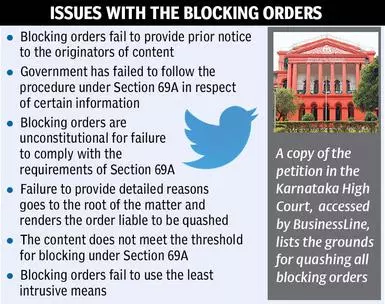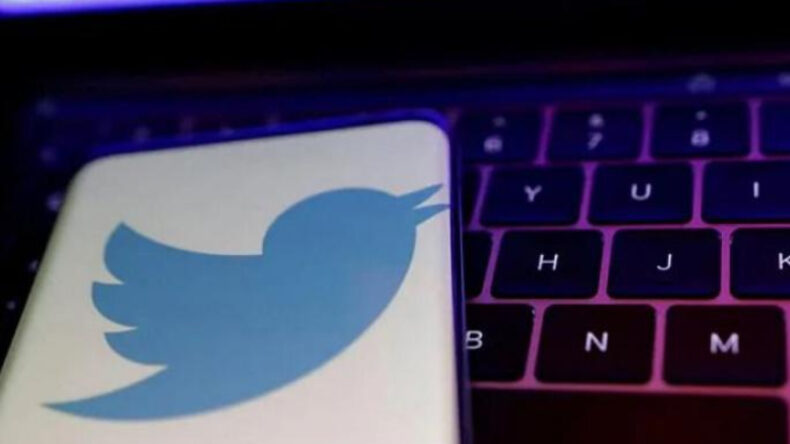Table of Contents
Background
Twitter had filed a petition against the Central Government seeking to set aside multiple blocking orders that were issued by the Central Government and modify directions from a blanket ban on the individual account to identify specific violative content.

Further, it stated that the orders issued by the Central Government were not procedurally and substantially compliant with Section 69A of the Information Technology Act.
Recent Developments
The Karnataka High Court on Friday dismissed a petition filed by Twitter challenging ten blocking orders issued by the Central Government between February 2021 and 2022, directing it to take down 39 URLs.
Justice Krishna Dixit of Karnataka HC also imposed a 50 lakh rupee fine on Twitter, stating that Twitter was unable to state the reasons for non-compliance with the government orders promptly.

Referring to the judgement, the judge further stated that he was convinced by the Central Government’s arguments that not only does the Central Government have the power to block tweets but also block accounts to protect the national and public interest. The judge further stated that the judgement dealt with eight questions, including whether the reasons for blocking a tweet should be communicated to the user and whether the blocking of tweets should be done for a specific period or whether the tweets could be blocked for an indefinite period.
Twitter must pay the penalty of ₹50 lakhs within a time period of 45 days to the Karnataka State Legal Services Authority, and if there is failure to pay within the given time frame, then a fine of ₹5,000 per day would be imposed.
Twitter’s Petition
From a total of 1,474 accounts and 175 tweets that the government ordered it to block, Twitter hereby challenged the blocking of only 39 URLs.
In its petition filed before the Karnataka High Court, it stated that the blocking of accounts is a disproportionate measure and violates the rights to freedom of speech and expression ensured by the Constitution.
The petition further stated that orders issued by the Central Government are manifestly arbitrary and procedurally and substantively not covered by Section 69A of the IT Act.
Twitter’s Arguments
Senior Advocates Ashok Haranahalli, Arvind Datar, and Advocate Manu Kulkarni representing Twitter argued that the Central Government lacked authority to issue orders to Twitter regarding the blocking of specific media accounts and further contended that the order must also contain reasons that it needs to convey to the users who are getting blocked.
It further argued that an order blocking a particular account or tweet should be issued only if the nature of the content published by the account aligns with Section 69 A of the Information Technology Act.
Arguing on the same, they further stated that if the reasons for blocking are not provided, then there is a chance that the same could be manufactured at a later stage. They further argued that Article 226 of the Constitution of India, which deals with the writ jurisdiction of High Courts, is not merely restricted to violations of Constitutional rights, and thus Twitter was allowed to approach the High Court for the aforementioned matter.

Further, it stated that the Central Government failed to comply with the procedures and safeguards prescribed in the Information Technology (Procedure and Safeguards for Blocking Access to Information by the Public) Rules, 2009 (Blocking Rules).
Central Government’s Defence
The Additional Solicitor General of India, R. Sankaranarayanan, arguing on behalf of the Central Government, argued that Twitter cannot represent its account holders and, thus, does not hold any ground to file the petition. Further stating that since Twitter is a foreign company and the ten blocking orders issued by the government were not arbitrary, the company could not rely upon the fundamental rights enshrined in Articles 14 and 19 of the Indian Constitution, which ensure the right to equality and the right to freedom of speech and expression, respectively.
The Central government, in response to the allegations levied by Twitter, stated that the order to block certain Twitter accounts and certain tweets was issued in the national and public interest and to prevent incidents of riots, lynchings, and mob violence.
The government further emphasised that it was committed to providing an open, safe, trusted, and accountable internet to its citizens, that its powers to block information had a limited scope, and that judicious and righteous use of the same would be ensured.













